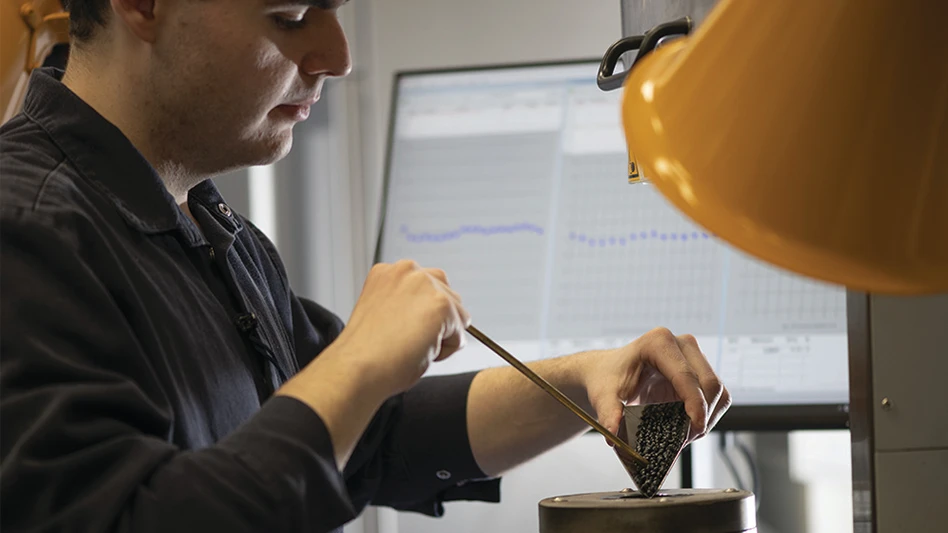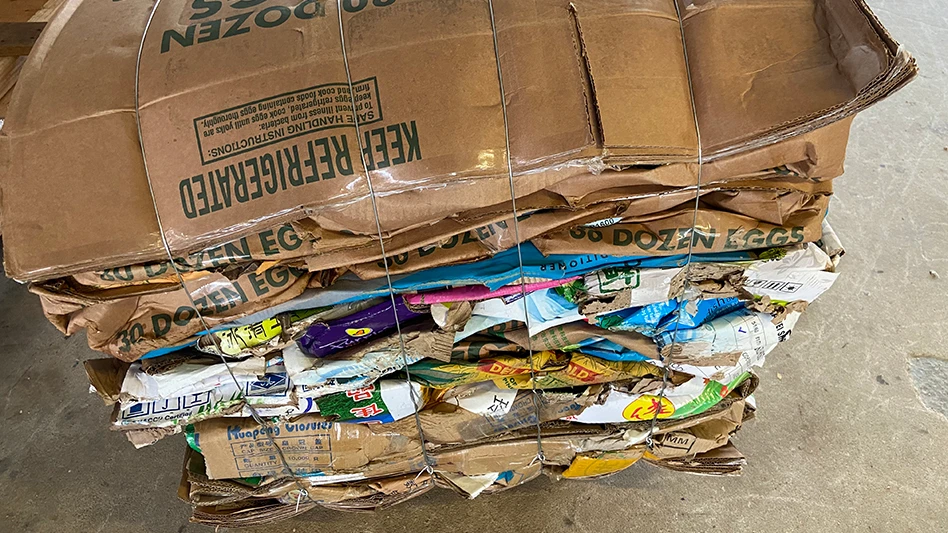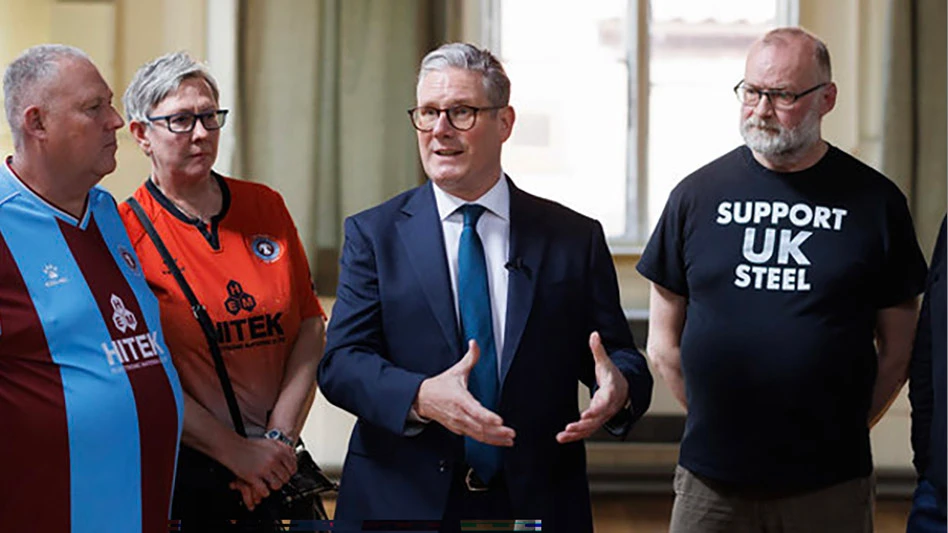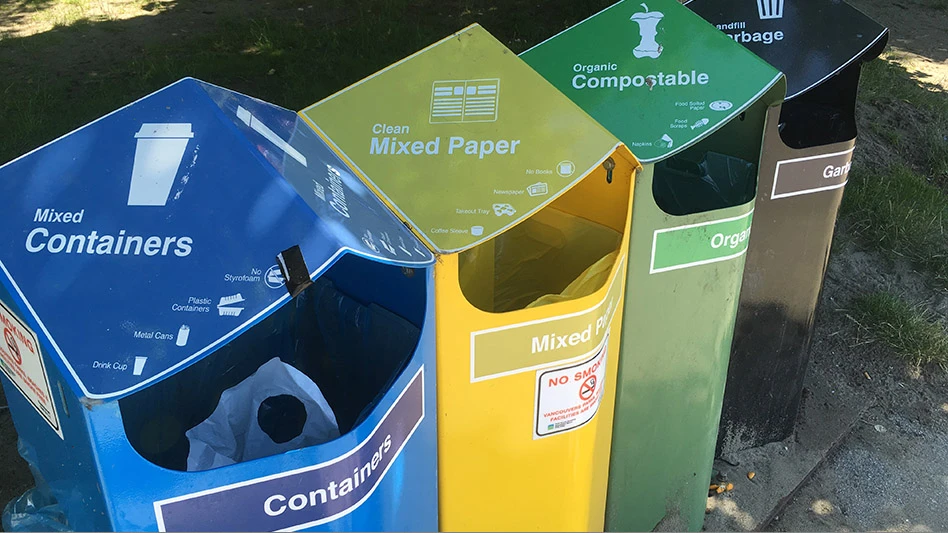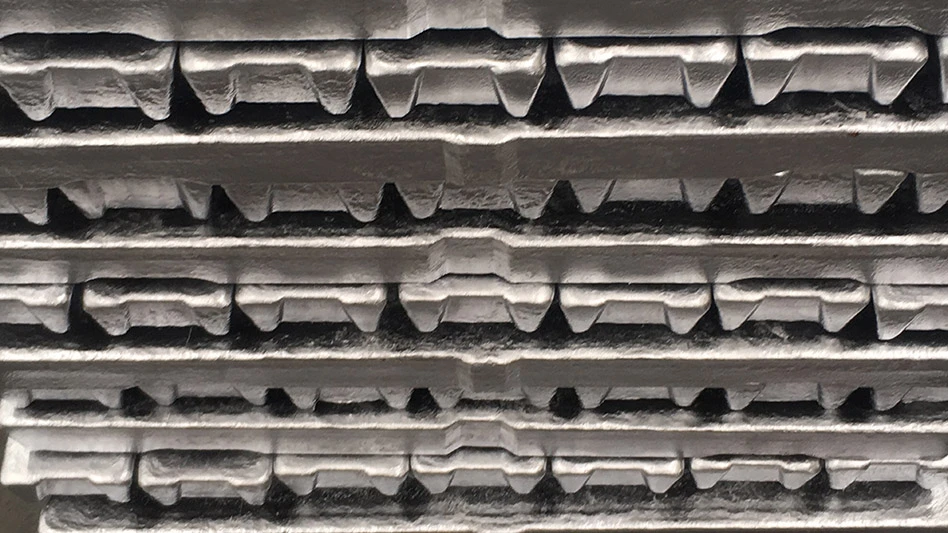 Scrapping science
Scrapping science
For the past year, Gershow Recycling, Medford, New York, has helped to bring the Tesla Science Center at Wardenclyffe one step closer to its opening date. The scrap processing company says it has been providing scrap metal collection containers at the site of the scientific education and innovation center as part of the cleanup effort, resulting in the removal of more than 23.5 tons of scrap metal in a year’s time.
The Tesla Science Center at Wardenclyffe (formerly Friends of Science East) is a nonprofit organization formed to develop a regional science and technology center at the site of the alternating current electricity and neon lighting inventor’s former Wardenclyffe laboratory. The Shoreham, New York, site contains the only remaining laboratory where engineer and inventor Nikola Tesla conducted research, according to the science center’s website, www.teslasciencecenter.org.
Carton consumption
The marketers of Icebox Water thought inside the box when it came to packaging this on-the-go water. Composed of 74 percent cardboard and pressed paper, “the greenest packaging available” for water is 100 percent recyclable and is compostable in up to 24 months, unlike a traditional polyethylene terephthalate (PET) plastic bottle, according to the company.
While some mills recycle the cartons into tissue, others use the paper fibers to make office paper, Icebox says.
The water is sourced from True North Springs in Notre Dame Bay, Canada. For more information, visit www.icebox-water.com.

Wearable waste
 As a full-service recycling center, Dockery Recycling, Selma, California, processes typical recyclable materials, such as old corrugated containers (OCC), polyethylene terephthalate (PET), old newspapers (ONP) and glass, among other materials. After years of helping the agricultural industry to recycle old materials ranging from plastic irrigation hoses to broken crates, Dockery’s owners decided to make more out of the lay-flat irrigation tubing that piles up in the millions of pounds in landfills. The 300-foot-long hoses range from 4 inches to 14 inches in width.
As a full-service recycling center, Dockery Recycling, Selma, California, processes typical recyclable materials, such as old corrugated containers (OCC), polyethylene terephthalate (PET), old newspapers (ONP) and glass, among other materials. After years of helping the agricultural industry to recycle old materials ranging from plastic irrigation hoses to broken crates, Dockery’s owners decided to make more out of the lay-flat irrigation tubing that piles up in the millions of pounds in landfills. The 300-foot-long hoses range from 4 inches to 14 inches in width.
Founded in 2013, Landfill Dzine is a family-owned business that processes products used in agriculture into new products. The company takes lay-flat irrigation tubing—made of plastic, nylon and rubber—and turns it into fashion. Purses, wallets, flip flops, belts and other accessories have roots in recycling as they once served as irrigation tubing for crops in California, the company says.
While much of the old tubing is green and blue, resulting in most products incorporating those two colors, the company introduces bamboo and cotton to its line to add variety. For more information, visit www.landfilldzine.com.
Sponsored Content
Still relying on manual sorters?
Let AI do the heavy lifting. Waste Robotics delivers reliable, high-performance robots tailored for complex waste streams. They require minimal maintenance, are easy to operate, and are designed to boost your recovery rates. Smarter sorting starts with the right partner. Waste Expo Booth #1969 & REMA #2843
Click here to see our robots in action!
Do you have a unique recycling-focused story? Please send a press release to Megan Workman at mworkman@gie.net.
Get curated news on YOUR industry.
Enter your email to receive our newsletters.
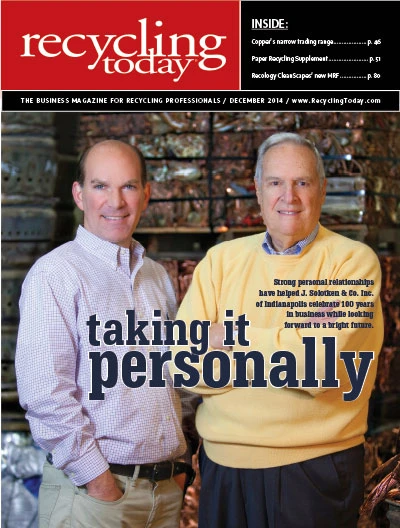
Explore the December 2014 Issue
Check out more from this issue and find your next story to read.
Latest from Recycling Today
- Acerinox names new North American Stainless CEO
- Greenwave closes 2024 books with red ink
- Steel Dynamics nets $217 million on record shipments
- Massive Chinese steelmaking rebound recorded in March
- LME looks into sustainable metal pricing
- OnePlanet Solar Recycling closes $7M seed financing round
- AMCS launches AMCS Platform Spring 2025 update
- Cyclic Materials to build rare earth recycling facility in Mesa, Arizona


